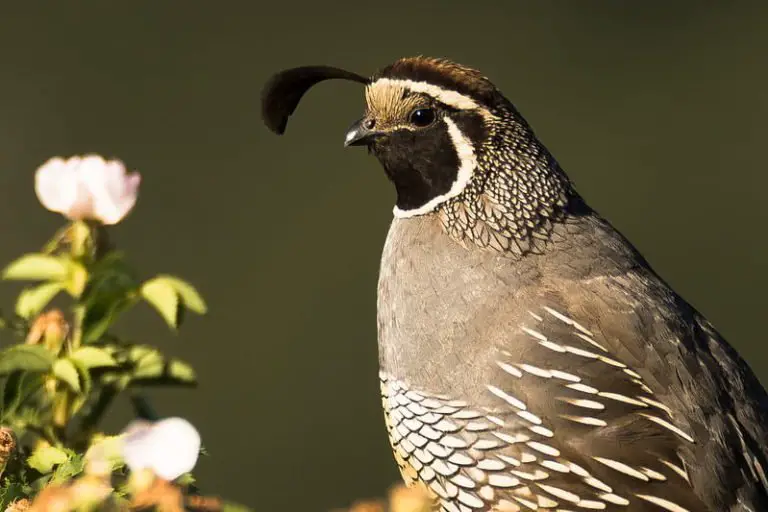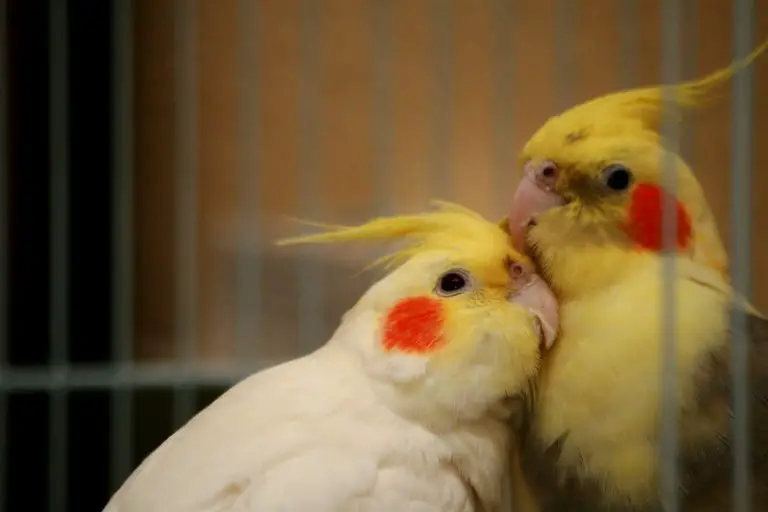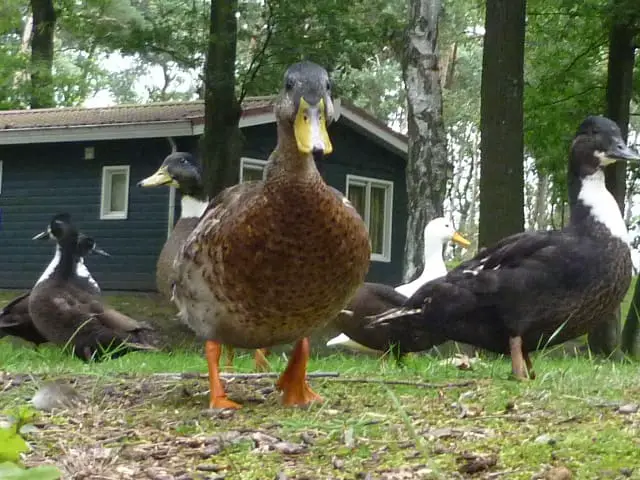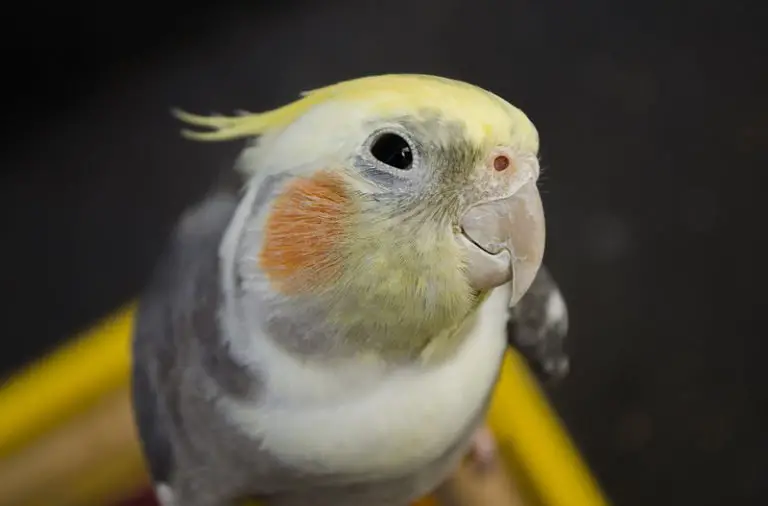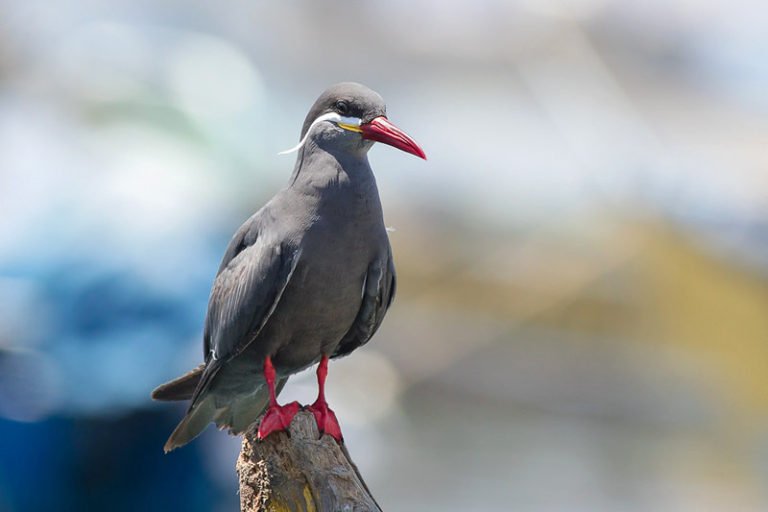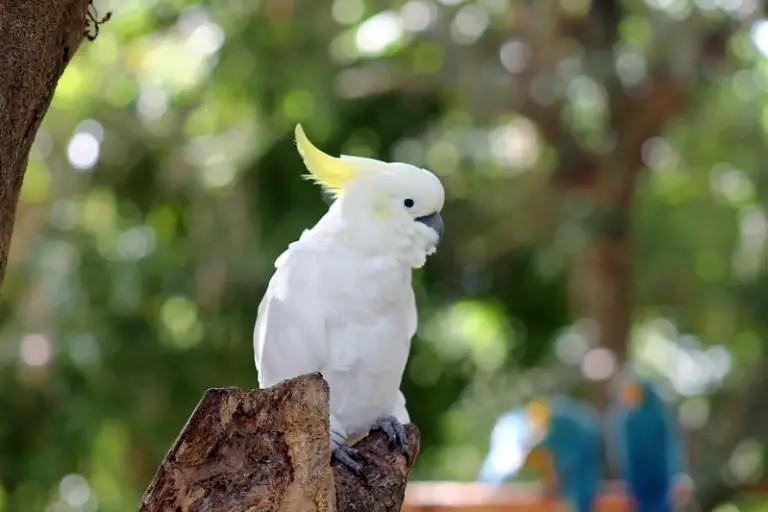Parakeets: List of Allowed and Forbidden Vegetables And Fruits
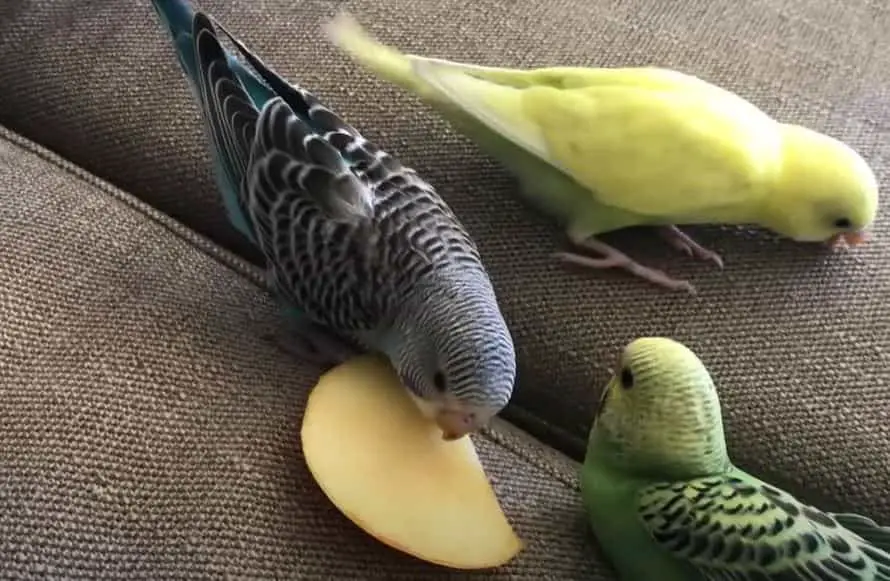
How often should budgies be given fruit and vegetables?
Fruit and vegetables should be offered twice a week. In the end, there are many types of fruits and vegetables to give your parakeets in each season.
Consequently, different vegetables can be offered to them according to the season. This means that you can feed your birds fresh and varied foods throughout the year.
It also works well to feed more vegetables than fruit. This is due to the fact that the sugar in fruit can lead to obesity. Parakeets with certain diseases cannot eat fruit at all. These include, for example, fungal infections such as macro-rheumatic (“mega bacteria”).
Parakeets are allowed to eat many types of fruit and vegetables, but far from all. You must therefore not simply offer your birds what you have at home.
Rather, you should only give fruit and vegetables that are well tolerated by budgies and non-poisonous. So before you offer a new variety, you must first be sure that parakeets are allowed to eat this variety.
Allowed fruits and vegetables for Parakeets
The following list, therefore, contains the most important types of fruit and vegetables that you can give budgies.
| Allowed fruit for parakeets | Allowed vegetables for parakeets |
| pineapple | Eggplant |
| Apple | Batavia lettuce |
| apricot | |
| pear | Chicory |
| Blueberry | Iceberg lettuce |
| blackberry | Endive lettuce |
| Clementine | Lamb’s lettuce |
| strawberry | fennel |
| pomegranate | Lettuce |
| Blueberry | pumpkin |
| raspberry | leek |
| currant | Red leaf lettuce |
| cherry | Corn on the cob (but only fresh) |
| kiwi | Chard |
| Lychee | Peppers |
| tangerine | Hot peppers |
| mango | radish |
| melon | arugula |
| Mirabelle plum | Cucumber |
| nectarine | celery |
| orange | |
| papaya | |
| peach | |
| Gooseberry | |
| Grape | |
Tips and precautions when offering fruits and vegetables to parakeets
The seeds of apples and other fruits, such as peaches and nectarines, contain poisonous hydrogen cyanide.
Therefore, seeds or pips should be removed before offering the fruit.
In winter, no salad should be given because the nitrate content of salads from greenhouses is too high. However, this also applies to organic products.
Prohibited fruits and vegetables for budgies
Some types of fruits and vegetables, familiar to us people and well accepted by us, are prohibited for parakeets as they are considered poisonous to the birds.
Some types of these are so poisonous that parakeets will die on the spot if they nibble on them. Other varieties do not cause immediate death but can cause serious digestive disorders, organ damage, and life-threatening cardiovascular problems.
The following list, therefore, contains important fruits and vegetables that you should not give to your birds:
| Prohibited fruit for parakeets | Prohibited vegetables for parakeets |
|---|---|
| avocado | Beans |
| Grapefruit | cauliflower |
| lime | Peas |
| Plum as well | garlic |
| lemon | Mushrooms |
| rhubarb | |
| raw potatoes (boiled potatoes are allowed) | |
| Red cabbage, white cabbage, and savoy cabbage | |
| asparagus | |
| Tomatoes | |
| Onions |
Forbidden fruits and vegetables should never be taken as an exception. And even if one of your birds has nibbled on a forbidden species and survived it, it may still have been internally damaged.
Not all varieties result in instant death, after all: some poison the bird in an insidious way. Or as the saying goes: the dose makes the poison. Avocados, however, can be instantly fatal.
can budgies eat pumpkin seeds?
Pumpkin seeds are a nutritious and well-accepted food for budgies, in general, budgies are used to feed on seeds, pumpkin seeds are not a toxic food and do not require special preparation so it is very easy to provide.
Budgies can eat pumpkin seeds raw and dried, ideally, the seeds should be as natural as possible, without salt or seasoning.
Buy and store fruit and vegetables properly
You should buy fruits and vegetables in such a way that your budgies absorb as little pesticides and other pollutants as possible. Therefore, it makes sense to only buy organically grown products.
It is just as important, however, that you do not bring in any germs with the fruit and vegetables.
Therefore, you should only buy fruit or vegetables that are wrapped in foil. If that is not possible, you can use products that are far back on the shelf.
In this way, you can reduce the risk that other people have touched the goods and left germs on them. It is important to know that washing the dishes under running water does not always remove all germs. Therefore, it is better that you buy the cleanest greens possible in advance.
The fruit has high water content and is therefore easily perishable. You should therefore not store it at all and feed it immediately.
Vegetables, on the other hand, don’t spoil as quickly as fruits. It can therefore be kept in the refrigerator for a few days and then fed. But that doesn’t apply to tomatoes.

